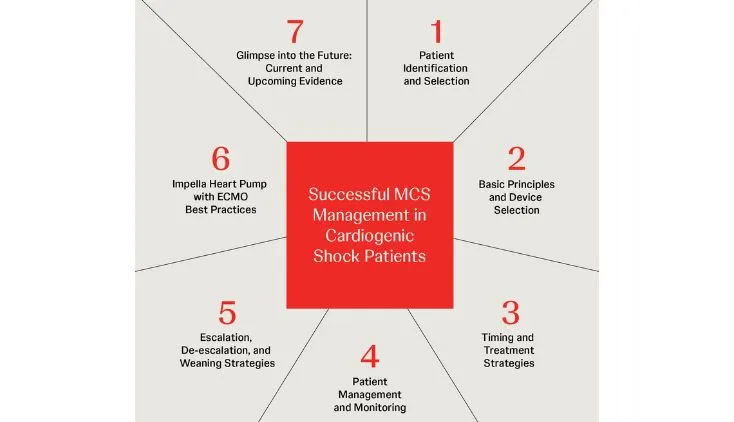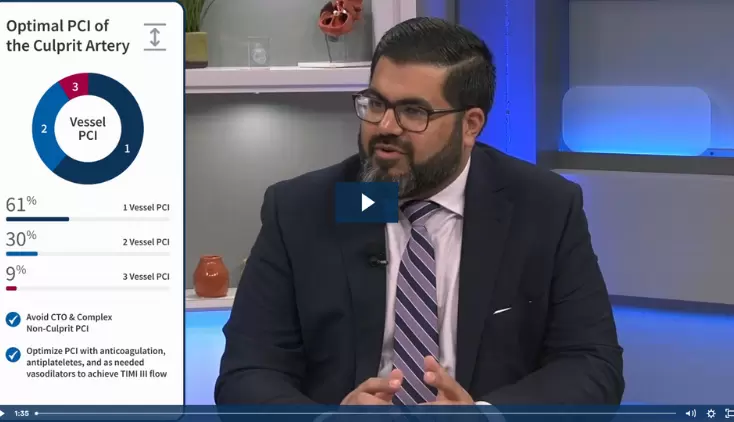Case Review, ECMO, Escalation Therapy, AMI Cardiogenic Shock
ECpella Therapy
A panel of physicians discuss the planning, timing, and management of Impella® with VA ECMO (ECpella) in this Coronary Artery & Myocardial Protection webinar. Hosted by Misty Casseus, MSN, RN, the faculty for this discussion include:
- Jacob Abraham, MD, medical director, advanced heart failure, Providence Heart Institute in Portland, Oregon
- Raymond Lee, MD, director of heart transplant and mechanical circulatory support, division of cardiac surgery, Keck School of Medicine of University of Southern California in Los Angeles
- Bindu Akkanti, MD, associate professor, director of heart and vascular critical care, Memorial Hermann-Texas Medical Center in Houston
Dr. Abraham discusses patient identification for ECpella. He describes the importance of pressure-volume (PV) loops for understanding load and which patients derive the most benefit from ECpella. He highlights that ECpella support with VA ECMO and Impella 5.5® with SmartAssist® can facilitate weaning, reduce the amount of time the patient is on ECMO, and enable lower ECMO flows, which may minimize ECMO complications. He believes there’s a strong rationale for the use of ECMO based on pathophysiologic principles as well as his own experience. “We’ve had terrific experience using the Impella 5.5, specifically for unloading and venting of ECMO, particularly in the setting of chronic decompensated advanced heart failure with cardiogenic shock.”
Dr. Lee discusses patient selection for ECpella and algorithms for escalation. He examines the mechanisms, technical requirements, and hemodynamic responses with various mechanical circulatory support (MCS) devices as well as data supporting the ECpella strategy.
Dr. Lee also presents three case studies, including one highlighting how ambulation with ECpella helped a 22-year-old patient in cardiogenic shock get to successful heart transplantation. “I’m not a fan of any non-ambulatory configurations,” Dr. Lee states in response to a question about various short-term MCS options for patients in cardiogenic shock.
Dr. Akkanti discusses ECpella from the standpoint of an intensivist, stating “It’s an exciting time to be in MCS critical care.” She compares short-term MCS devices—VA ECMO, IABP, TandemHeart, and Impella—noting that the ability of patients to ambulate with Impella via surgical cutdown is “really powerful.” “I think ECpella provides a bridge, and that bridge allows the patient to go towards recovery, or durable support, or decision, and it allows for a fighting chance for a lot of our patients.” She also emphasizes that ICU nurses are very comfortable with the Impella SmartAssist technology and reading waveforms.
Dr. Akkanti describes the multifaceted problem of hemometabolic shock, emphasizing the importance of timing in managing patients with cardiogenic shock. “The bottom line is, when we want to support these patients, we ideally need to support before this bomb blast, before all this multiorgan injury sets in.”
The webinar concludes with a Q&A in which the physicians discuss ECpella and other treatment options in more detail and reemphasize timing and the importance of ambulation in the management of patients with heart failure and cardiogenic shock.
IMP-3959


